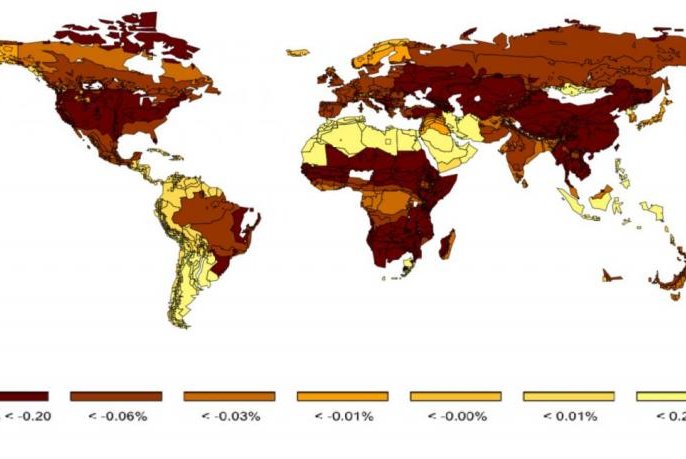Researchers designed a model to predict the effects of bioplastics production on global forests. Photo by Neus Escobar, Salwa Haddad, Jan Börner und Wolfgang Britz/IOP Publishing Ltd
Dec. 7 (UPI) -- Concerns about the environmental impacts of plastics and other petroleum-based products have inspired an increase in the production of bioplastics. But new research suggests bioplastics are unlikely to aid climate change mitigation.
According to the new study, published this week in the journal Environmental Research Letters, increased production and consumption of bioplastics is likely to encourage cropland expansion, which can lead to an increase in global greenhouse gas emissions.
The warning is similar to the one offered by scientists earlier this year in response to the European Union's decision to designate wood as a low-carbon fuel source -- a move climate scientists said will boost greenhouse gas emissions and decimate forests.
Like biofuels, the production of bioplastics are assumed to be carbon neutral. But some scientists argue that assumption is flawed.
Bioplastics and biofuels release carbon at the end of their lifecycles, but the raw materials that are used to produce bioplastics -- maize, wheat and sugar cane -- absorb carbon as they grow. The problem is maize, wheat and sugar cane require land, acreage that might otherwise host plants and animals that provide valuable ecological services and sequester carbon more efficiently than crops.
"The production of bioplastics in large amounts would change land use globally," Neus Escobar, researcher at the Institute of Food and Resource Economics at the University of Bonn, explained in a news release. "This could potentially lead to an increase in the conversion of forest areas to arable land. However, forests absorb considerably more CO2 than maize or sugar cane annually, if only because of their larger biomass."
Escobar and her colleagues say their study isn't speculation, as previous analyses have identified a direct link between growth in the green energy sector and deforestation. For the latest study, scientists used data collected by previous research efforts to build a model predicting the impacts of varying levels of plastics and bioplastics consumption on global greenhouse gas emissions.
"For our experiment, we assume that the share of bioplastics relative to total plastic consumption increases to 5 percent in Europe, China, Brazil and the USA," Escobar said. "We run two different scenarios: a tax on conventional plastics compared with a subsidy on bioplastics."
The simulations showed both scenarios would have roughly the same impact on the climate. According to the calculations, a tax would decrease in demand for plastics, resulting in the release of 0.08 percent fewer greenhouse gases. Substitutes for traditional plastics, however, would results in the loss of 0.17 percent of forest to crop production.
"According to our calculations, it will take more than 20 years for it to be offset by the savings achieved by fossil substitution," Escobar said.
Researchers think the negative impact of increased bioplastics production could be minimized if agricultural waste and byproducts were used, instead of agricultural products grown specifically for conversion into bioplastics.
"We recommend concentrating research efforts on these advanced bioplastics and bring them to market," Escobar said.















